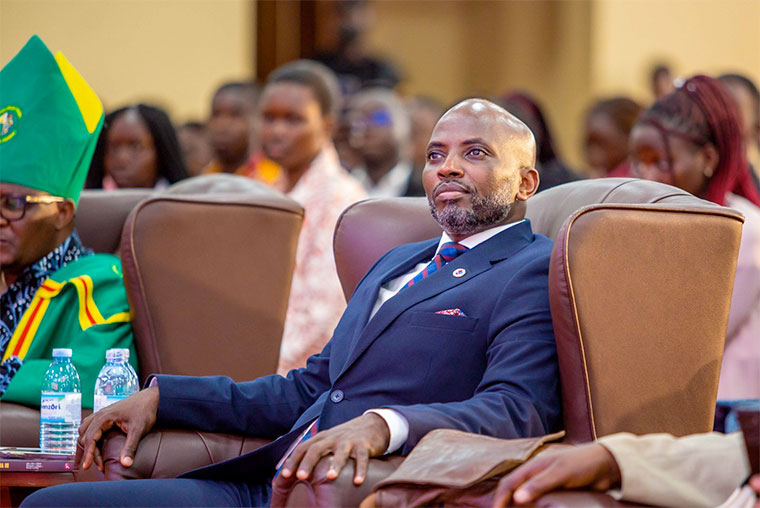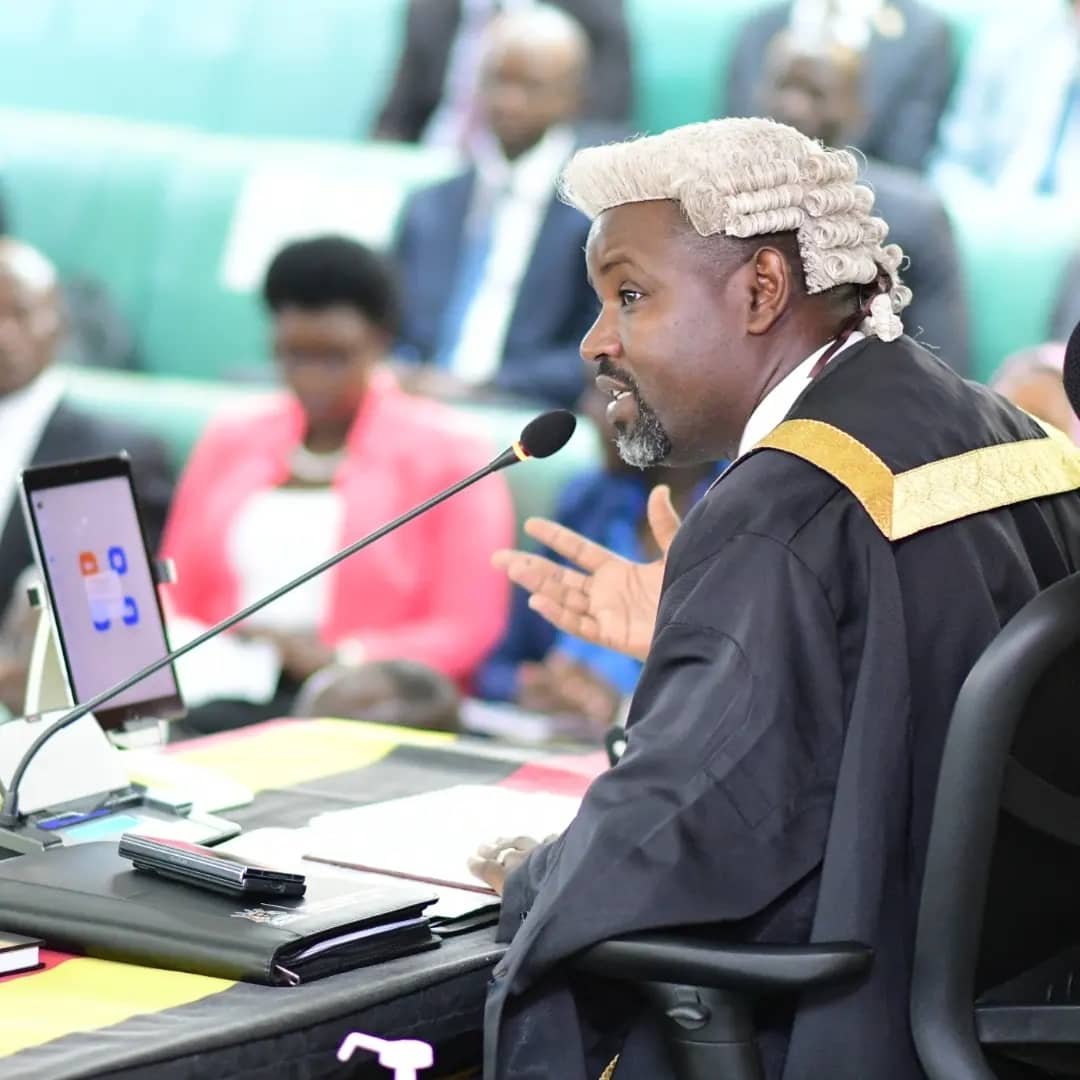Vice-Chancellor of Victoria University, Professor Lawrence Muganga, has joined the chorus of Ugandans demanding the elimination of national exams.
Muganga also supports the advancement of continuous evaluation, UNEB reorganization, and the introduction of a regionally focused educational framework.
On Tuesday, Professor Muganga made an appearance before the Education Policy Review Commission.
Muganga underlined that the current system is in jeopardy since it gives national examination results precedence over competencies.
He emphasized that even while most people believe that the current system is ineffective, reform efforts are hampered by people and powerful groups who stand to gain from maintaining the status quo and are reluctant to cause disruption.
Muganga voiced concerns about schools publicly selling themselves as factories that guarantee first-grade scores while criticizing the idea of national tests.
He observed that parents are vying with one another to have their kids enrolled in these schools.
Regretfully, he noticed that even proponents of change in education rarely question the content that kids are being taught in such establishments.
He said that the Education Policy Review Commission ought to show guts by confronting the problem head-on and advocating for the abolition of national exams in general and the Uganda Certificate of Education in particular.
He contends that national exams have devolved into a bother, making students unnecessarily anxious to the point that it is judged necessary for the military and police to be present throughout the tests.
Several people have called for the abolition of national exams; in fact, this suggestion has appeared in several memoranda.
At first, the World Bank recommended doing away with these tests to increase the percentage of students who successfully transfer from primary to secondary school.
In a paper submitted to the Education Policy Review Commission, the National Planning Authority (NPA) has also suggested eliminating the Primary Leaving Examinations (PLE) by 2027, claiming that this national evaluation is pointless.
The vice chairperson of the commission, Dr. Joseph Muvawala, stated that it seems the panel is inclined to do away with several national examinations, but he did not elaborate.
He continued by saying that after the national examinations are over, parents will start pressuring schools to provide accurate results.
But he also brought up an important question from the general public that shouldn’t be disregarded: “If you remove the exam, what will our students be based on to enroll in higher schools?”
According to Muganga, there is no need to worry regarding the removal of national exams because school transfer certificates could be created using the ongoing evaluations that students receive throughout their academic careers.
In his presentation, he presented a comprehensive evaluation system that would include district evaluations or assessments contributing 25% to overall performance, school continuous assessments contributing 20%, projects and presentations contributing 20%, character and student participation (in class and extracurricular activities contributing 10%), volunteering, enterprise, or apprenticeship contributing 15%, and emerging technology skills contributing 5%.
Muganga also suggested replacing the planned phase-out national tests with continuously designed teacher-made evaluations that are tailored to the unique requirements of children in different areas.
Muganga promoted the creation of a Research, Evaluation, Assessment, and Development (READ) committee from the Uganda National Examinations Board (UNEB).
This redesigned organization would have professional personnel working with District Evaluation Boards to help them develop a foundational framework for assessing gains.
Each district would have the ability to create curricula that specifically address the requirements of the local population after the District Evaluation Boards (DEB) were established.
Furthermore, this strategy seeks to prevent student mobility, particularly in the early grades, by guaranteeing that pupils attend local schools, he continued.
A commission member named Dr. Jacklyn Makaaru Arinaitwe expressed interest in looking into the possibility that, with the resources at hand and the number of districts that are always growing, the district might be too small.
In response, Muganga elaborated that, in line with his idea, the school district might encompass a broader area, like a region or a collection of districts, contingent upon what the commission determines to be more pertinent and efficient.
The National Planning Authority and former agriculture minister Victoria Ssekitoleko have also made comparable suggestions in favour of a regionalized approach to school curricula.
They emphasize how crucial it is to modify instructional materials for use in particular parts of the nation.
The argument posits that a nationalized curriculum that is uniform has not been able to adequately handle the different histories of pupils and has not been able to ensure that education is relevant to the child, community, and nation at large.
From elementary school to postsecondary education, the vice chancellor of Victoria University is an advocate for an all-encompassing competency-based education approach.
He points out the gaps that remain even if he welcomes the recent introduction of competence-based education in lower secondary levels.
Interestingly, he highlights the difficulty that colleges have not yet adopted this strategy even though secondary schools have.
He observed that many educational institutions fail to match their curricula to the skills demanded by employers.
For instance, he claimed that state institutions spend more than 15 billion shillings a year on answer books and paper, yet their pupils don’t know the fundamentals of utilizing computers to operate and write reports.
“Employers in the professional sphere do not need handwritten reports. So why do colleges spend money on handwritten tests when their pupils can’t even type on a computer?” He continued, “Students would graduate with a valued competence if exams were administered on computers.
He elaborated on his position by stating that the evaluation of competence-based learning ought to be predicated on the learner’s capacity to finish a particular module, regardless of the length of time spent in school, rather than the amount of time spent in class.
Casting doubt on the accepted norm, he questioned the conventional three-year bachelor’s degree program, claiming that some students could complete the program sooner.
One commission member, Monica Monge, expressed interest in Muganga’s perspective and asked whether a lower level may benefit from a similar method to accommodate bright students. Muganga confirmed that secondary schools might use this adaptable strategy.
He emphasized that there is no justification for preventing a student from moving on to the next educational level if they truly gain the required skills in a shorter amount of time.
From his perspective, nurturing and promoting gifted learners is not best served by strict adherence to set school policies.

















